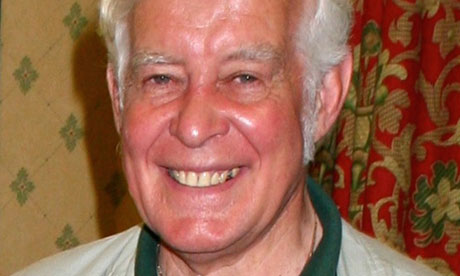Malcolm Harper obituary
Human rights and peace campaigner who worked for Oxfam and the British arm of the United Nations Association

Malcolm Harper and his Oxfam team had to cope with appalling infrastructure when they entered Cambodia in 1979 after the fall of the Khmer Rouge
Malcolm Harper, who has died aged 73 after suffering from lymphoma, devoted his life to the values seen as vitally important after the second world war and embodied in the United Nations: not just peace, but also human rights for all. He did this by working in the field for Oxfam and later as director of the British arm of the United Nations Association (UNA-UK).
One of Malcolm's first campaigns after becoming director of UNA-UK in 1982 called on states to freeze the production, testing and deployment of nuclear weapons. UNA-UK was an early supporter of the foundation of the international criminal court and lobbied Britain to reverse its decision to withdraw from Unesco in 1985; it rejoined 12 years later. And with other international groups it called for a landmine ban, eventually secured in 1997.
Malcolm visited troubled regions, from Afghanistan to Somalia. He also served the World Federation of UNAs for more than two decades, leading its European and Commonwealth groupings and chairing its executive committee (1995-2000).
The UN was founded in 1945 and for its 40th and 50th anniversaries Malcolm oversaw events involving everyone from grassroots UNA-UK members and primary school children to the Queen and several prime ministers. Out of the UN conference on environment and development held in Rio de Janeiro in 1992 came Agenda 21, an action plan for sustainable development. Malcolm sought to get its aims taken up by local communities in Britain and encouraged the growth of Stakeholder Forum. Another initiative that first flowered as part of UNA-UK wasInternational Service, which gives hundreds of young people the opportunity to volunteer abroad.
The UN's effectiveness was inevitably called into question after the atrocities in Rwanda and Srebrenica. Malcolm responded by putting its political constraints into context, but he never shied away from being critical himself when necessary.
Similarly, while maintaining close links with the government, he was fiercely opposed to the 2003 invasion of Iraq, calling instead for diplomacy and a security council resolution to deploy a new weapons inspection team and set out conditions for Saddam Hussein. Only if these were not met, he argued, should the council begin to contemplate further action. UNA-UK joined other groups in organising public petitions and protests: ultimately he came to believe that the episode only emphasised the need for security council authorisation to confer legitimacy on such action.
In 2004 he retired as director of UNA-UK and became joint president, though he still continued to campaign.
Born in London to Leonard, an engineer, and Enid Harper, Malcolm and his twin brother, Ewan, were educated at Marlborough college, Wiltshire, and Trinity Hall, Cambridge. There Malcolm read history and theology.
During a year as assistant to the Archbishop of Cape Town he saw at first hand the abuses of apartheid South Africa, and in 1962 abandoned his plans to become a priest. The following year he joined Oxfam, starting out as a field director in Nairobi, and going on to become emergencies officer (1972-75) and communications director (1975-81).
Oxfam was one of the first international agencies to enter Cambodia in 1979, after Vietnamese forces had expelled the despotic Khmer Rouge regime. Millions of people were in need, displaced and traumatised. There was no functioning administration or infrastructure and Malcolm and his team faced outright hostility from the new Vietnam-backed government. Despite these difficulties, they managed to organise the shipment and distribution of £25m in food and medical supplies over the next seven months.
While work at UNA-UK never involved such severe practical difficulties, there were constant financial challenges: the last of Malcolm's fundraising walks took him from John O'Groats to Land's End. Often the money raised would go to UN projects instead of UNA-UK's coffers.
He was an active member of St Mary's Church, Charlbury, Oxfordshire, and president of his local cricket club. Few things gave him greater pleasure than a day at Lord's watching a test match against Australia.
In 1966 Malcolm married Ann Broad, who survives him, as do a son, two daughters and a grandson. He is also survived by Ewan and a sister, Diana; his brother Michael predeceased him.
• Malcolm Harper, internationalist and campaigner, born 21 June 1939; died 9 May 2013
Nessun commento:
Posta un commento